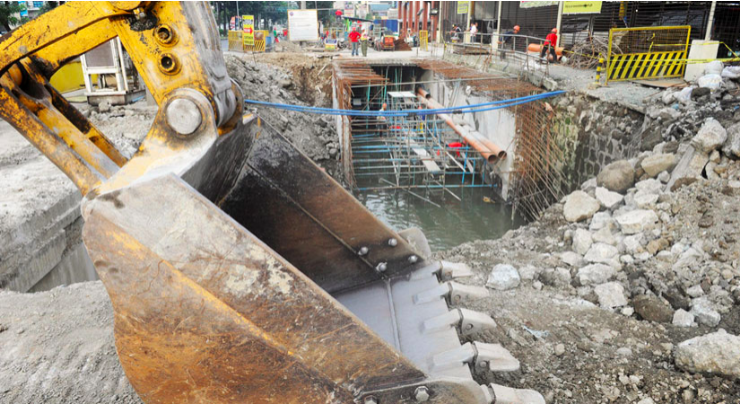
SOME business organizations in the country are open to the government’s focus on the Swiss challenge mode for private-sector involvement in major infrastructure projects, after President Rodrigo R. Duterte announced his preference for this framework in a speech in Davao City on Friday last week.
“[A]ll projects of the Philippines would be something like a Swiss challenge,” Mr. Duterte had said after arriving from a visit to India, citing the need for both national state offices like the Department of Public Works and Highways and for local governments to eliminate corruption in their projects.
Asked to elaborate, Presidential Spokesperson Herminio Harry L. Roque, Jr. said in a press briefing televised from Iloilo City on Sunday afternoon: “Right now, Swiss challenge is only intended for big infra[structure] projects.”
That’s the intention of the law providing for Swiss challenge,” Mr. Roque added, referring to Republic Act No. 7718, enacted in May 1994, which amended RA 6957 of July 1990 by adding, among others, that “unsolicited proposals for projects may be accepted by any government agency or local government unit on a negotiated basis, provided… the government agency or local government unit has invited by publication, for three consecutive weeks in a newspaper of general circulation, comparative or competitive proposals and no other proposal is received for a period of 60 working days; provided, further, that in the event another proponent submits a lower price proposal, the original proponent shall have the right to match that price within 30 working days…”
“It’s to enable PPP projects, so ‘yun ‘yung ini-explore ng presidente na at least, sa big-ticket projects let us avail of the Swiss challenge,” Mr. Roque explained.
Leaders of business groups interviewed yesterday were generally receptive to the focus on the Swiss challenge mode.
“I found government procurement extremely difficult… because of all of the paperwork,” European Chamber of Commerce of the Philippines President Guenter Taus said by phone.
“In my opinion, this Swiss challenge is a welcome change and I hope it straightens out the time frame that we take for bidding. I see this as a positive step.”
Philippine Chamber of Commerce and Industry President George T. Barcelon recalled that the open bidding mode favored by the past administration did not result in the best deal all the time.
“This public bidding, they base on the lowest cost. But the thing is, sometimes the terms of reference and the liability agreement are not clearly spelled out. And if it’s the lowest cost, it doesn’t mean you are getting what you are supposed to be getting,” Mr. Barcelon said by phone.
Referring to the Swiss challenge mode, he said: "I would think it doesn’t harm the business sector because this is on the proactive side.”
“Like, if you think that there is a need for a project on the government side, you can propose you don’t have to wait for the government to say there’s a bidding this project,” Mr. Barcelon added.
“In the past, many of these projects were awarded to the lowest bidder. There were cost overruns, delay, sometimes incompletion of projects.”
Sought separately for comment, Makati Business Club Executive Director Peter Angelo V. Perfecto was more cautious, saying his group “shares the President’s frustrations regarding the slow pace of infrastructure development caused by various factors including slow bidding process, TROs (temporary restraining orders) applied for by losing bidders, corruption in the bureaucracy, alleged collusion of contractors, among others.”
“Like any other procurement process, the Swiss challenge has its pros and cons,” Mr. Perfecto noted in a mobile phone message.
“In the end, government must carefully weigh its options. But a better way forward is ensuring that a comprehensive national transport and logistics plan is the basis of procurement decisions.”
This article was originally published on January 29, 2018 on BusinessWorld.com»